All year round there are festivals in Barcelona, some only take place in the city whilst others are celebrated throughout Catalonia or nationwide. The biggest Barcelona festival is Festes de la Merce which takes place in September and consists of giant wooden figures roaming the city streets. There are some amazing fireworks on the ‘Nit de Sant Joan’ in June when Barcelona celebrates midsummer. Many international musicians regularly appear at concerts in Barcelona whilst June welcomes thousands of visitors to the El Sonar Festival.
Top 10 Festivals in Barcelona
New Year in Barcelona
When?: 1st January
As a New Year dawns, the place to be at midnight on New Year’s Eve in Barcelona is Plaça de Catalunya where large crowds gather for several hours before the bells. As the clock strikes twelve, fireworks are set off all over the city and the festivities continue long into the night. New Year’s Day is a day for families to get-together and share one of the year’s most important meals. The city then takes a break from festivities in preparation for Epiphany on January 6th when children receive their gifts from the Three Kings.
Three Kings’ Day (Día de Los Reyes Magos)
When?: 5th and 6th January
El día de los Reyes Magos (Three Kings Day) takes place on 6th January and marks the end of the Christmas festivities in Barcelona. The main event, however, takes place on the night of 5th January when the three kings (Melchior, Gaspar and Balthasar) travel the streets of the city on the back of floats throwing sweets to the children in the crowd.
This parade, known as La Cavalcada dels Reis Mags, begins at Port Vell and ends at the Magic Fountain of Montjuïc. After the parade, children rush home for an early night and leave out their shoes for the three kings who come during the night to leave gifts for the ones who have been well behaved. In reality many children receive gifts on Christmas days nowadays.
Carnival in Barcelona
Known as Carnestoltes in Catalan, Carnival is one of the biggest annual festivals in Barcelona. It takes place every February in the period leading up to Lent and involves a whole range of parades, concerts, parties, dances and street celebrations throughout the city. Highlights include the arrival of the Carnival King (Rei Carnestoltes), a massive parade (Rúa) through the city, the orange fight (Taronjada) and a big masked ball (Sarau).
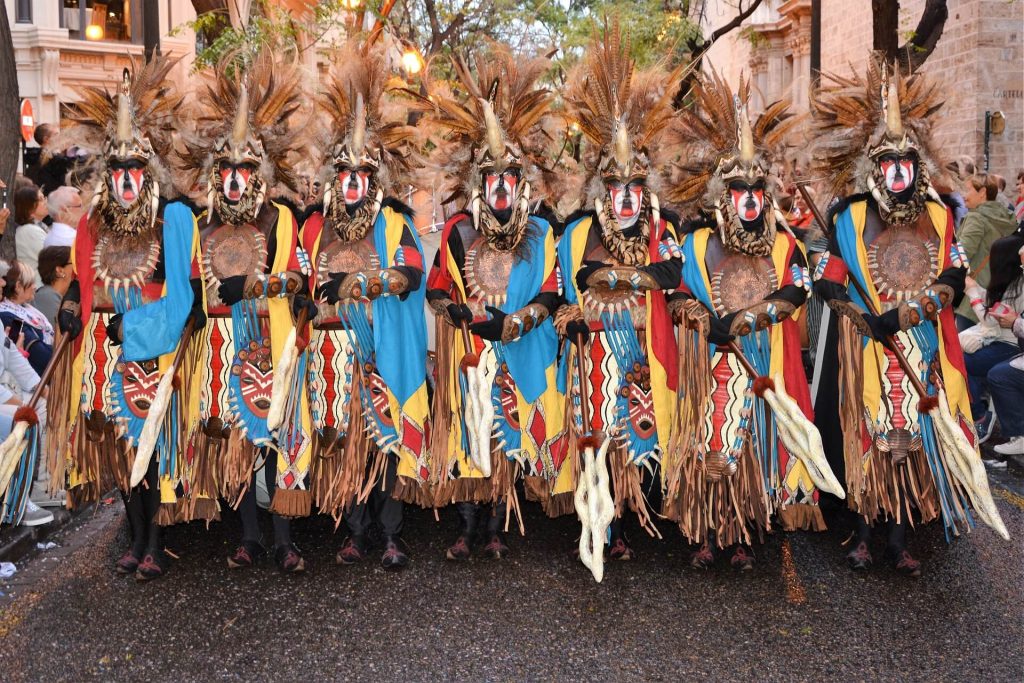
Another major part of Carnival are the concerts hosted around different neighborhoods of Barcelona which go on late into the night with live music and dancing. The festival concludes with the Burial of the Sardine, a mock funeral parade on Ash Wednesday marking the end of Carnival.
Semana Santa (Holy Week)
Semana Santa takes place in late March or early April each year in Barcelona. It marks the week leading up to Easter Sunday. The festival has deep religious and cultural significance for the city. The main events centre around elaborate processions of floats which depict scenes from the Passion of Christ like the Last Supper or the Crucifixion. Participants dressed in robes and conical hats, known as nazarenos or penitents, march solemnly in the processions.
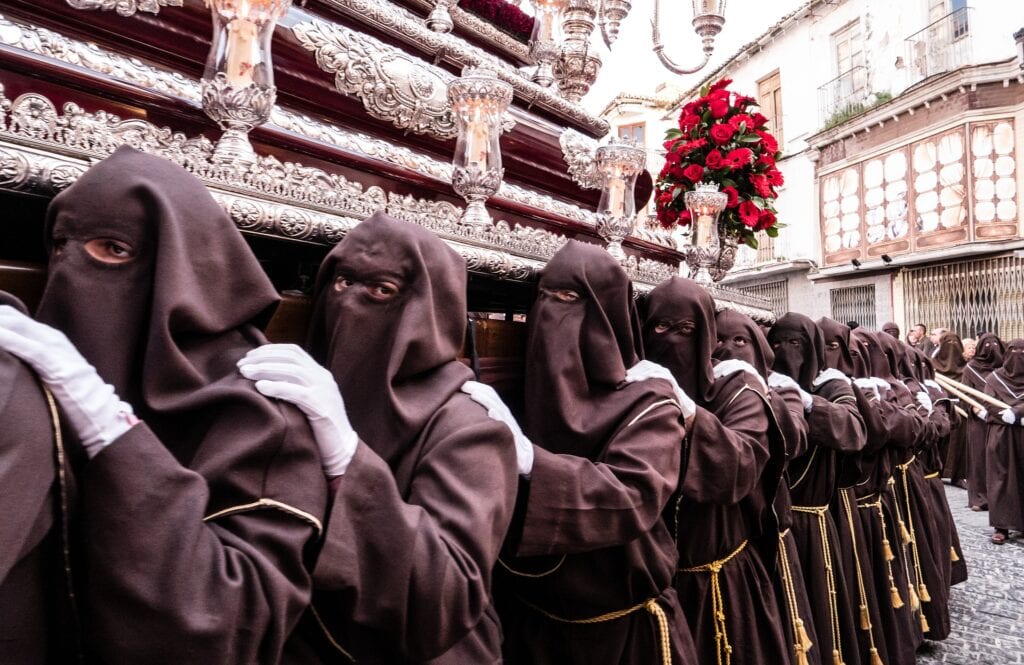
Two key processions are La Processó de la Sang on Holy Thursday and La Processó de la Soledat on Good Friday. These involve thousands of participants and attract huge crowds along the Gothic Quarter route. The processions evoke a sombre atmosphere with music and chanting. In addition to the street processions, there are stage productions of passion plays recreating the Holy Week story. Concerts of classical religious music also take place in cathedrals and churches.
Día de Sant Jordi
When?: 23rd April
International Book Day meets Valentine’s Day on 23rd April when Catalans celebrate their patron saint, Sant Jordi (Saint George). It is customary on this day for couples to exchange gifts – men receive a book and women get a rose. However, it is increasingly common for both men and women to give each other books and roses. This is a great time to be in Barcelona when the city, and especially the Ramblas, transforms into an enormous open-air bookstore and flower market. The streets are fill with people browsing book and rose stalls as they seek the perfect gifts for their loved ones. In some plazas you’ll find stalls selling recently published books and famous authors signing copies.
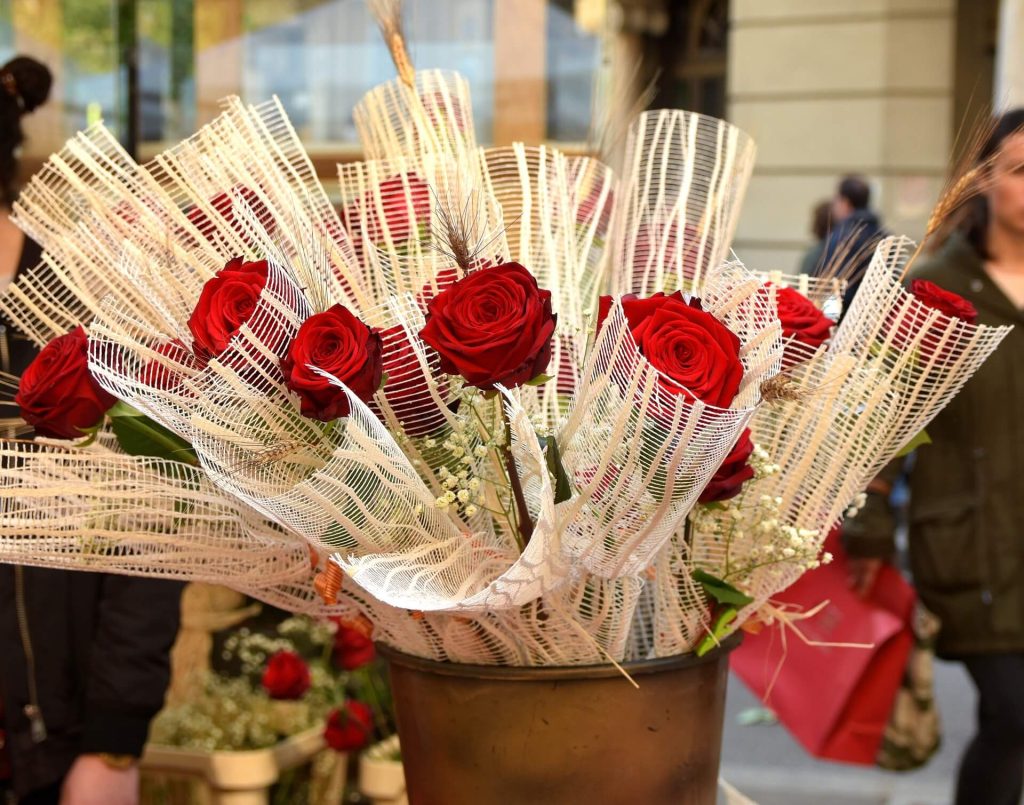
It seems that the origins of this event date back to 1923 when a bookseller started the festival in honor of the great writers Miguel de Cervantes and William Shakespeare who both died on April 23rd.
Sónar Festival
When?: mid-June
The annual Sónar Festival is a 3-day music, art and technology event held in Barcelona in June. Sónar emphasizes the experimental side of electronic music, with a diverse lineup of international DJs, live acts and avant-garde performers. The festival is comprised of Sónar by Day, held at the Fira Montjuïc events venue and Sónar by Night, hosted at various clubs and venues across the city.
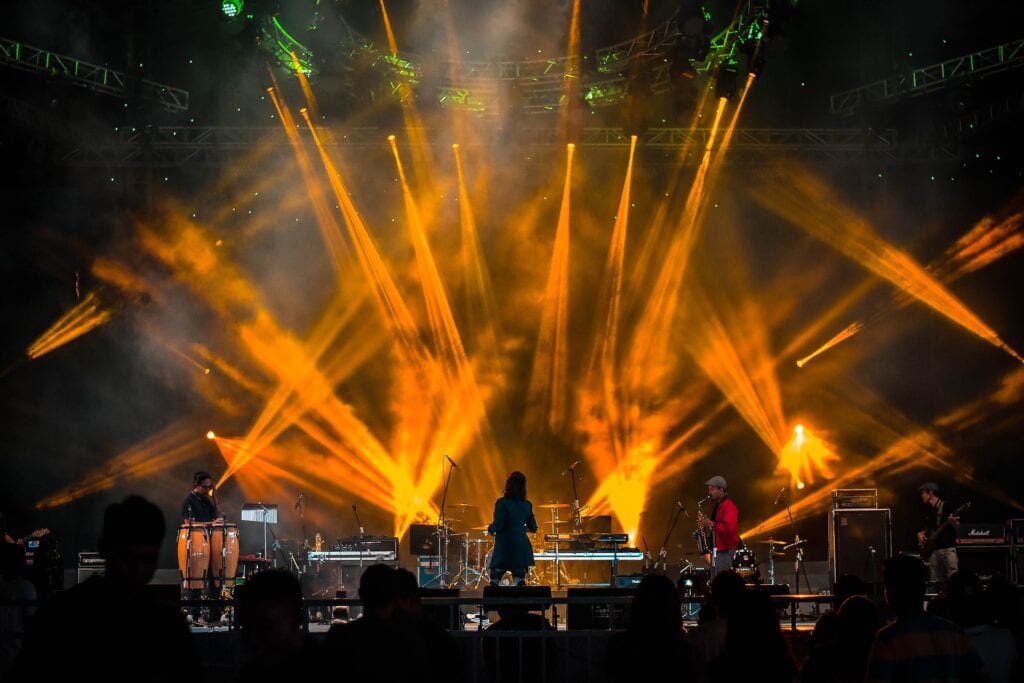
In addition to the music concerts, Sónar also showcases multimedia art exhibitions, technology conferences and immersive experiences. The vibrant, futuristic atmosphere attracts over 100,000 attendees annually. Sónar has cemented itself as a landmark festival for Barcelona, as well as a leading event for electronic music worldwide.
Festival de Sant Joan
When?: 23/24th June
The Festival de Sant Joan is a lively midsummer celebration held in Barcelona every June 23rd. It revolves around the evening before Saint John’s Day, the eve of the summer solstice. The main event is a grand fireworks display over the sea by the beach. Thousands of residents gather on the sand to watch the colourful pyrotechnic show illuminate the night sky. Other traditions include bonfires in plazas across the city, street parties and music concerts. Locals stay out late enjoying drinks, dancing and festivities to welcome the summer.
Festival Grec de Barcelona
When?: June-August
The Grec Festival is Barcelona’s premier annual performing arts festival held every summer. Running from late June to early August, Grec features many events spanning theatre, dance, music and circus arts. Most performances and concerts take place outdoors in landmark locations like the Teatre Grec amphitheatre on Montjuic hill.
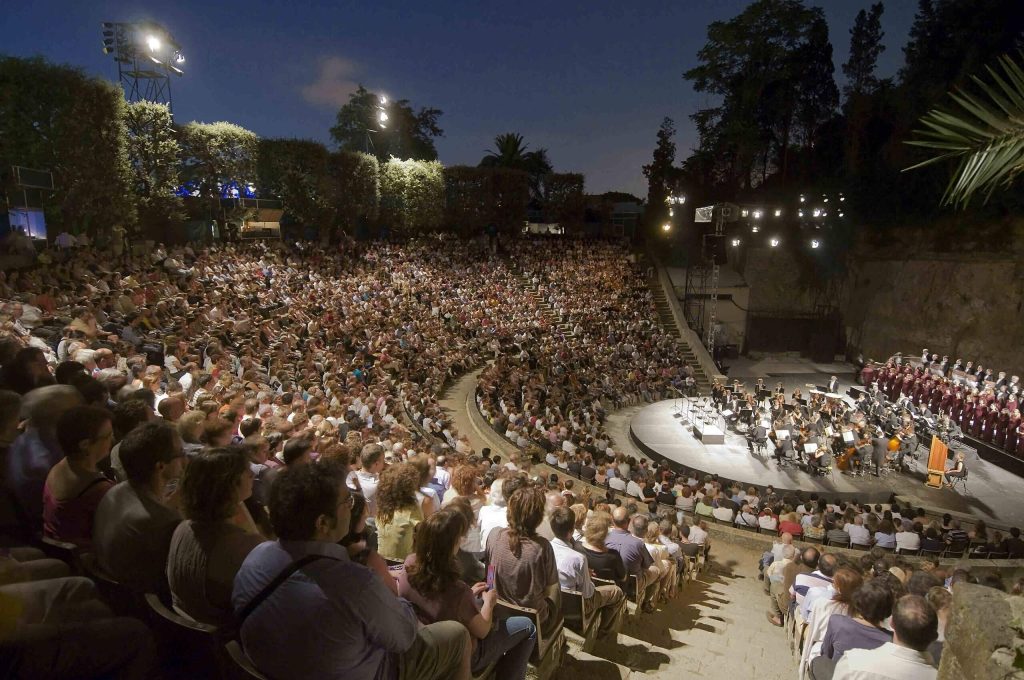
The festival brings together local artists as well as international acts to create an immersive cultural experience across the city. Grec offers innovative contemporary theatre alongside Greek tragedy productions, paying homage to the festival’s namesake. The summer night atmosphere, diverse programming and celebration of the arts make Grec Festival a highlight of Barcelona’s cultural calendar each year.
Festa Major de Gràcia
When?: Around 15th August
The Festa Major de Gràcia is a lively neighborhood festival held each August in Barcelona’s charming Gràcia district. For one week, the colourfully decorated streets host all kinds of cultural events including music, dance, shows, food markets and children’s workshops. Outdoor concerts featuring Catalan musicians are very popular with attendees partying late into the night. This festival which attracts thousands of visitors every year is known for encapsulating Barcelona’s vibrant culture and community spirit.
El Día Nacional de Cataluña (Diada)
When?: 11th September
Catalonia’s National Day, La Diada, is held on 11th September and commemorates the fall of Barcelona during the War of Spanish Succession in 1714. In Barcelona, the main event is a pro-independence rally marching down Avenida Diagonal with participants wearing pro-independence flags and calling for Catalan sovereignty. Political speeches, street parades, human towers (castellers) and evening concerts are all part of the events which brings a strong sense of Catalan identity and nationalism to the forefront. The scale of the independence rallies and cultural celebrations make La Diada one of Barcelona’s most significant public events of the year.
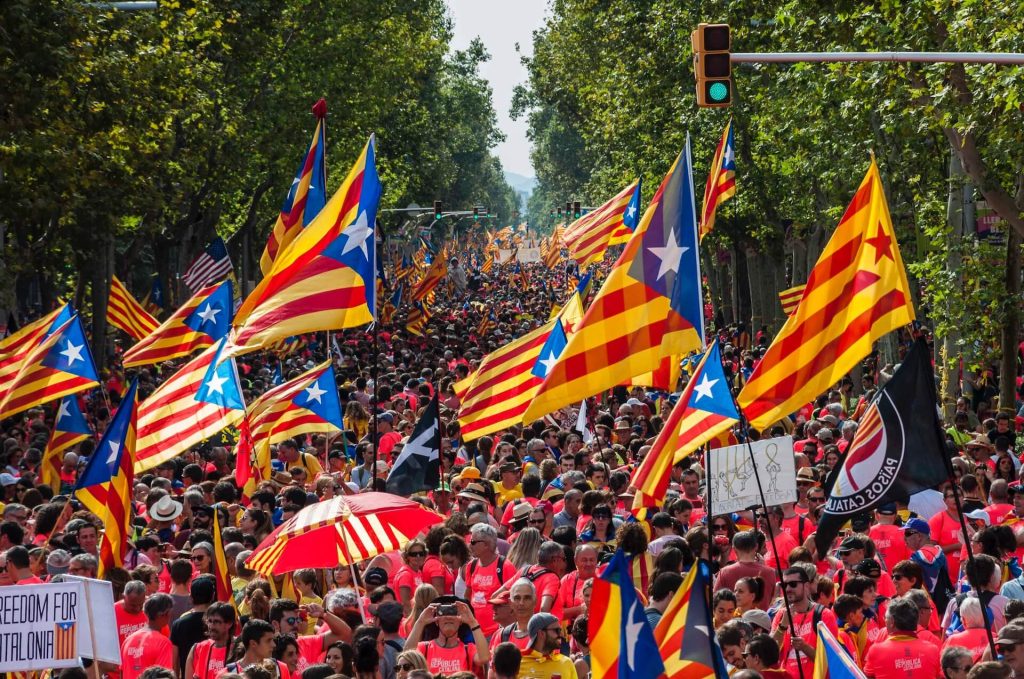
Festes de la Mercè
When?: around 24th September
The Festes de la Mercè is Barcelona’s biggest annual street festival attracting over two million visitors. The festival takes place for five days around 24th September in honour of Our Lady of Mercy (La Mare de Déu de la Mercè). The event includes music concerts, theatre performances, parades, dances, firework displays and heavy consumption of Cava, the national drink of Catalonia. Highlights include human towers (Castellers), the fire run (Correfoc) and parades of papier-mâché giants (Gegants).
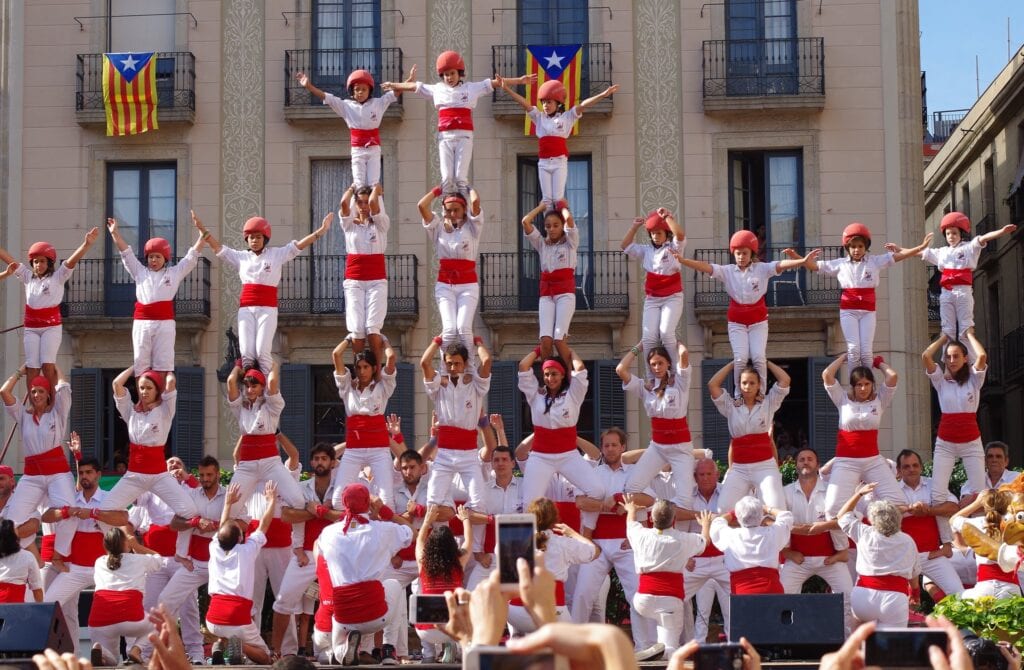
Public Holidays in Barcelona
As well as the festivals listed above there are also local and national holidays which might take place during your visit. The effect on opening times of tourist attractions during such holidays will vary so it’s best to check the official websites of these places. The main shops and banks will close on public holidays though many tourist businesses will stay open. Most bars and restaurants are unaffected.
1st January – New Year’s Day
6th January – Epiphany/Three Kings
March/April – Good Friday
March/April – Easter Monday
1st May – Labour Day
May/June – Pentecost (local)
24th June – Sant Joan (local)
15th August – Feast of the Assumption
11th September – National Day of Catalonia (local)
24th September – La Merce Festival (local)
12th October – Columbus’ Day (National Day in the rest of Spain)
1st November – All Saints Day
6th December – Constitution Day
8th December – Immaculate Conception
25th December – Christmas Day
26th December – Boxing Day


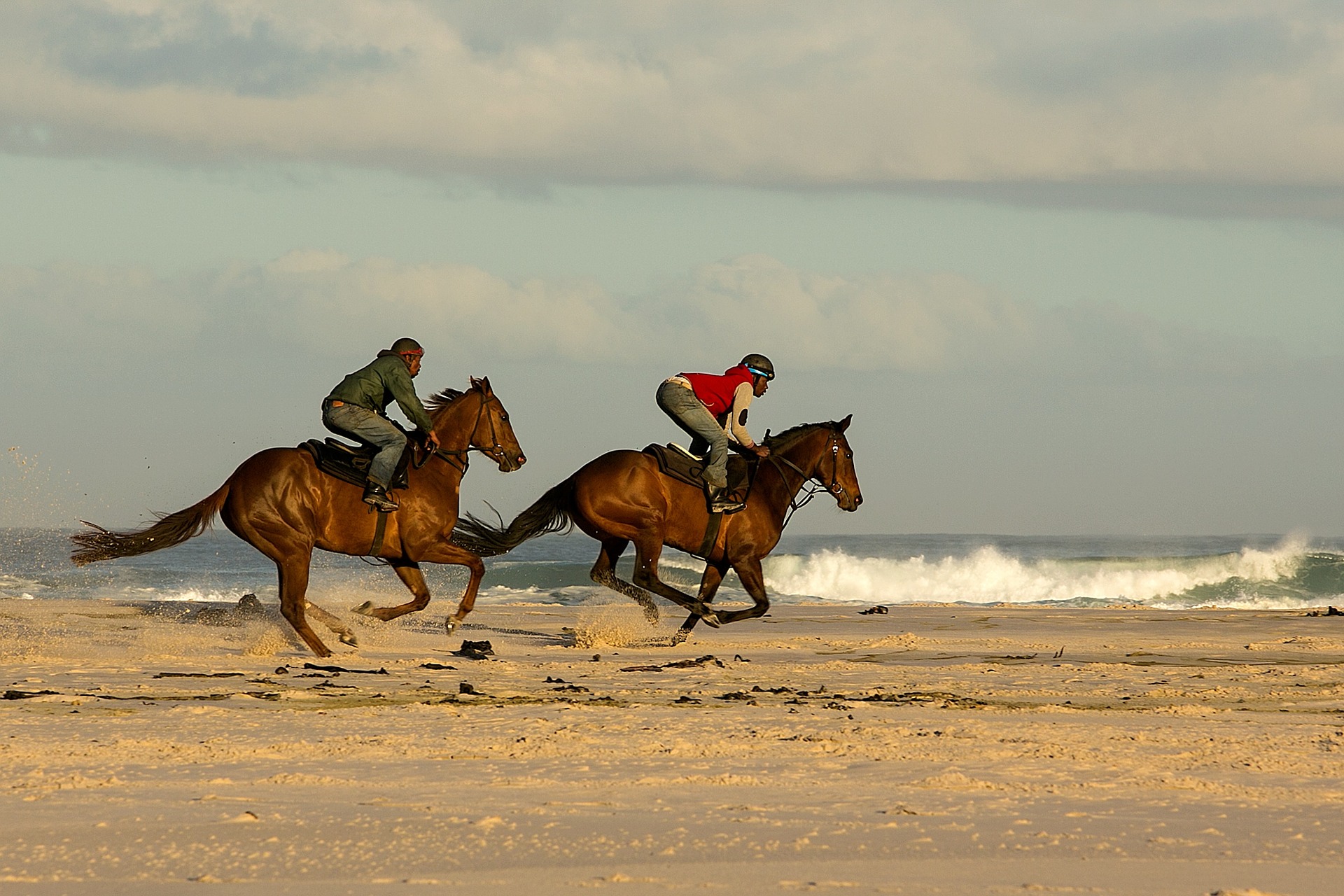

I love Sant Joan and Sant Jordi. The last one is a funny mix of St. Valentine’s and the book’s day. Lol. I was there this year and wrote a post on my blog. Feel free to read it.
http://www.spainatyourpace.com/sant-jordi-festival-barcelona/